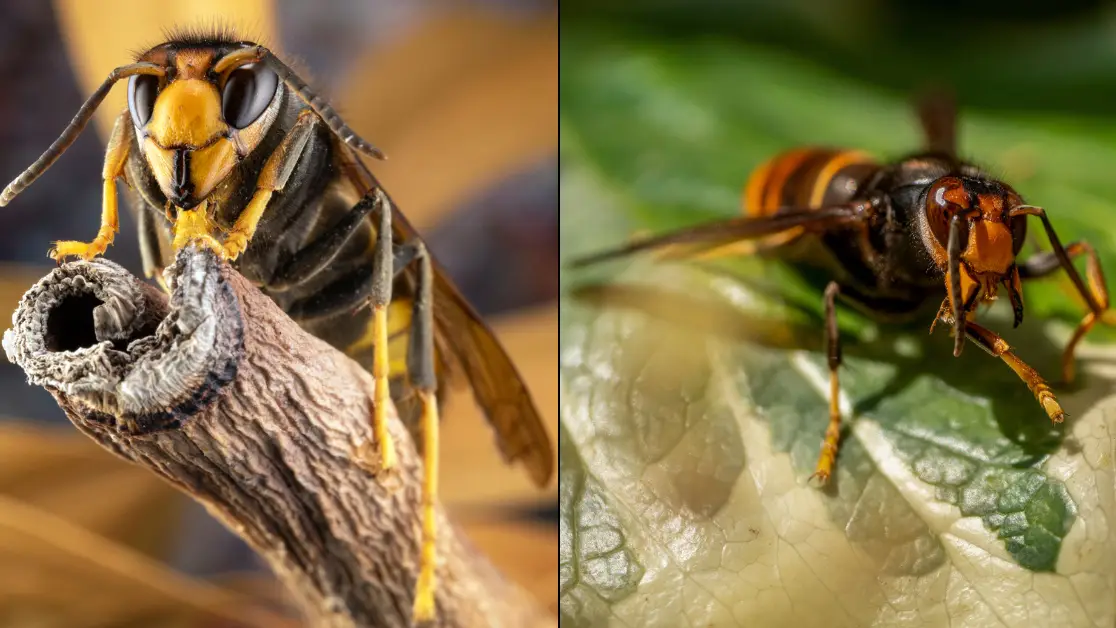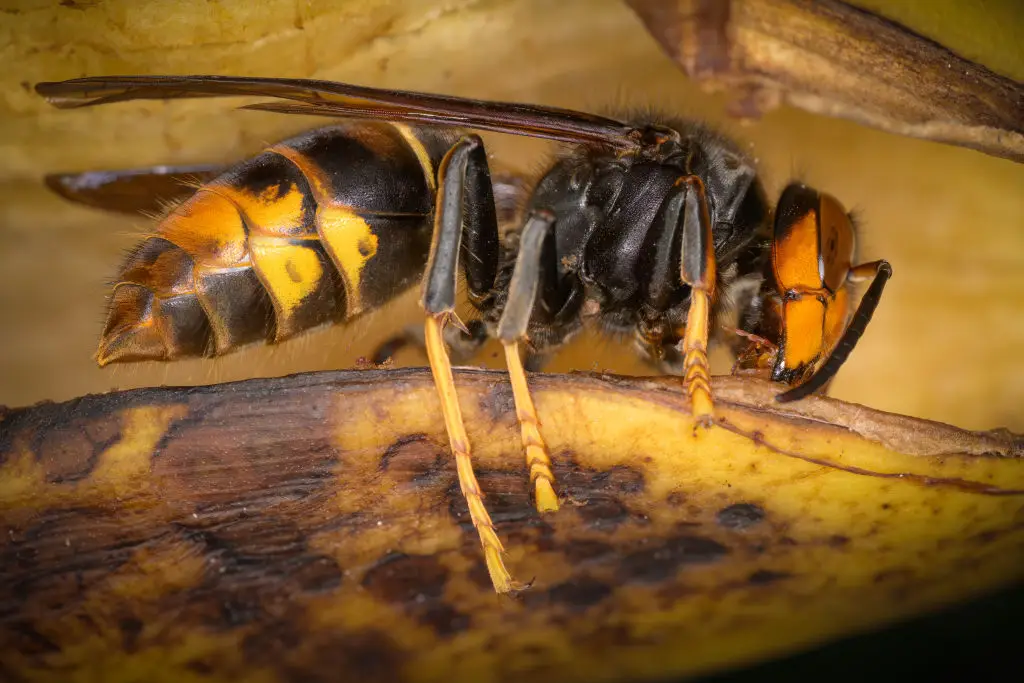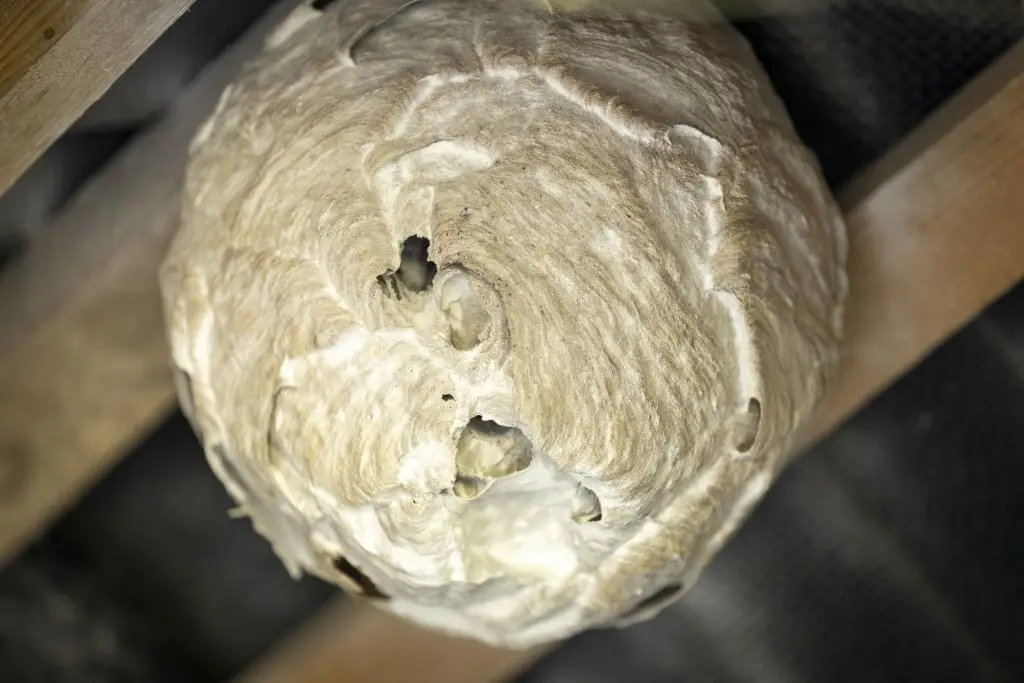
Brits across the country have been warned to keep an eye out for deadly Asian Hornet wasps.
The insect, which is categorised as invasive species by the UK Centre for Ecology and Hydrology (UKCEH), has been making headlines over the past couple of years due to the threat they pose against honeybees.
What are Asian Hornet wasps?
As the name suggests, Asian Hornets are native to tropical regions of Southeast Asia. However they have since migrated over to various European countries, leading to concerns about their impact on local ecosystems.
They are identifiable by their smaller size compared to other wasps, dark body, wide orange stripe across their fourth abdomen section and yellow leg ends.
Advert
Asian Hornets are considered a predatory towards honeybees, with a single hornet capable of killing 50 bees alone. Whereas a swarm of wasps could easily destroy hive of 30,000 bees.
This is particularly concerning given the fact that around 35 different bee species are under threat of extinction in the UK.

Are Asian Hornets dangerous to humans?
Well, yes and no.
Advice from the Department for Environment Food & Rural Affairs (DEFRA) states that Asian Hornets pose 'no greater risk to human health than other wasps or hornets'.
The biggest risks the wasps pose to humans is when they feel 'threatened' as reports state Asian Hornets have been known to 'charge' in a group if they feel their nest has been threatened.
Therefore it's important to note that if you find an Asian Hornet wasp hive in your home you shouldn't make any attempt to destroy or move the nest.
"Asian hornets are not generally aggressive towards people but an exception to this is when they perceive a threat to their nest," DEFRA added in their advice.
Should you find yourself being stung by an Asian Hornet, it's normal to expect pain and swelling in the affected area, with Jay Riggs, from Zeal CBD describing their sting as 'similar to being stabbed by a red-hot needle. Where the needle punctures the skin, it can swell severely and ache for a few days'.
Should you end up being stung, the advice is to thoroughly wash the area with soap and cool water before later applying ice to limit the spread of venom.

What to do if you spot an Asian Hornet
There has been around 10,000 potential Asian Hornet sightings reported across the country so far this year through the 'Asian Hornet Watch' smartphone app.
Though the UKCEH has emphasised that 'only 25 of these reports have been confirmed as yellow-legged hornets, with the others being native insects'.
Should you be able to get close enough to an Asian Hornet in order to identify one - not that you'd want to - DEFRA advises that you should download the app to report the sightings, or to fill in this online report form.
If not, you can email [email protected] with a photograph if it is safe to do so, as they explain that identification guides and further information is available on the gov.uk sightings page and on BeeBase.
Topics: UK News, Animals, Environment